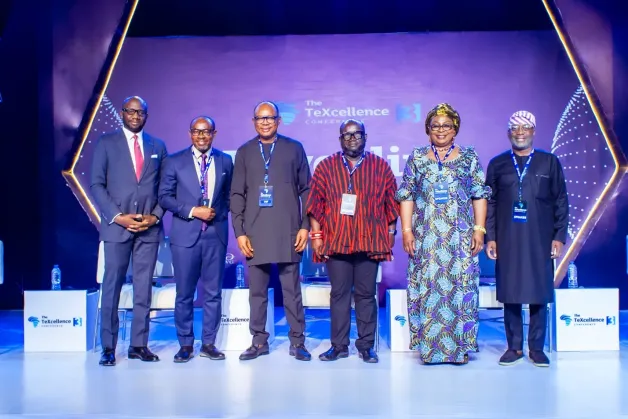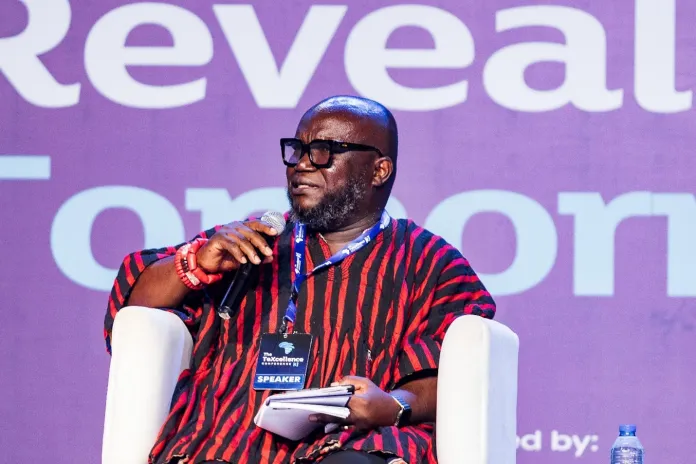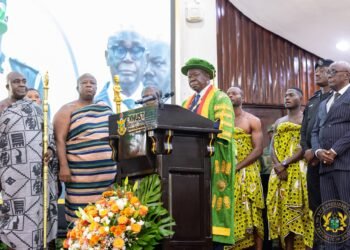At the recently concluded Texcellence Conference 2024, a call for African nations to move beyond the role of mere consumers in the technology industry and embrace a collaborative, innovative approach was made by Dr. Kenneth Ashigbey, CEO of the Ghana Chamber of Telecommunications.
Dr. Ashigbey, who was a speaker at the Government Parastatals panel, argued that Africa’s technology challenges could be transformed into powerful catalysts for continental innovation if African countries work together to develop solutions tailored to their unique needs.
“Africa must redefine its role in the global tech landscape by becoming creators and innovators, not just consumers.
“Our technology challenges are gateways for cross-border collaboration that can spark solutions tailored to Africa’s unique needs and drive long-term progress across the continent.”
Dr. Kenneth Ashigbey, CEO of the Ghana Chamber of Telecommunications
One major opportunity Dr. Ashigbey pointed to is Africa’s burgeoning 5G market, which, according to a 2021 report by Ericsson, is expected to reach 70 million consumers by 2026. This growing market could serve as a springboard for further technological advancement on the continent.
However, he cautioned that success will require a paradigm shift in how African nations and organizations approach technology. Rather than competing for limited resources and market share, African tech players should begin viewing each other as collaborators.
“We need to start thinking about how we can work together and view each other more as collaborators than competitors.
“The organisations that will succeed are those that can recognise their rivals and still find ways to collaborate with them.”
Dr. Kenneth Ashigbey, CEO of the Ghana Chamber of Telecommunications
Dr. Ashigbey underscored the need for African countries to work in unison to pool resources, share expertise, and scale technological solutions across borders.
Bridging Africa’s AI Knowledge Gap

With Artificial Intelligence (AI) reshaping industries globally, Dr. Ashigbey also addressed the continent’s current deficiencies in AI expertise. He warned that Africa risks being left behind in the AI race unless it prioritizes foundational STEM education, particularly in mathematics, which underpins AI algorithms.
“We talk endlessly about AI, but we’re not teaching enough of the mathematical principles behind the algorithms that drive it.
“If Africa wants to build its AI capabilities, we need models trained on African data and expertise developed locally.”
Dr. Kenneth Ashigbey, CEO of the Ghana Chamber of Telecommunications
This concern underscores the urgent need for Africa to build a robust pipeline of local talent capable of understanding, developing, and implementing AI technologies.
Without a stronger emphasis on STEM education and localized data for AI models, Africa could remain dependent on foreign technologies that may not align with its unique needs.
The Texcellence Conference panel, themed “Collaborative Innovation: Shaping Africa’s Tomorrow Economy,” also featured leaders from Nigeria’s National Information Technology Development Agency (NITDA), Ghana’s telecommunications sector, and other key stakeholders. A common theme that emerged was the pressing need for policy reforms that promote cross-border technology exchange and innovation.
“A more unified regulatory approach could enhance regional collaboration and foster sustainable economic growth,” Dr. Ashigbey argued. Standardized regulations would simplify business operations, enabling telecom and tech companies to share resources and strategies more effectively.
Dr. Ashigbey also underscored the importance of inclusivity in technology, especially for non-English speaking communities across the continent.
“We cannot be having conversations where the language used is foreign to our people,” he said, advocating for technology solutions that allow users to interact in their local languages.
Africa’s linguistic diversity poses a unique challenge for digital inclusivity, as many digital interfaces are predominantly in English.
Making technology accessible to speakers of various African languages is essential for ensuring that the benefits of digital transformation reach the grassroots level, empowering citizens across socioeconomic and linguistic divides.
The Texcellence Conference, now in its third year, has become a key forum for driving technological development in Africa.
By focusing on collaborative solutions to the continent’s unique challenges, the conference highlights a pathway for African nations to harness their collective strength and move beyond consumer roles to become creators and innovators.























